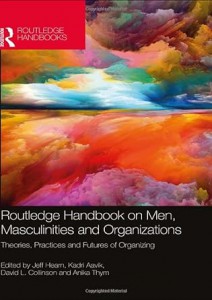
Chapter / Changing and challenging work–life negotiations for men and organizations
Majda Hrženjak has published a chapter entitled “Changing and challenging work-life negotiations for men and organisations” in the Routledge Handbook on Men, Masculinities and Organisations: Theories, Practices and Futures of Organizing, edited by Hearn, J., Aavik, K., Collinson, D.L., & Thym, A. https://doi.org/10.4324/9781003193579.
The chapter examines the genealogy of the concept of work-life balance and its reception in critical studies of men and masculinity. It starts from the assumption that the relations between men and masculinities, work-life balance and organisations are not simple, but complex processes of negotiation and adaptation to different work and intimate situations, which are also embedded in a global neoliberal context. A review of existing research shows that it focuses mainly on the situations of heteronormative, middle-class, bi-career couples in the Global North and childcare. Men are seen primarily as fathers, torn between norms of masculinity such as work-centredness, competitiveness and financial support for the family, and androcentric norms of the ideal worker that are perpetuated in organisations. Through the thematisation of reconciliation under neoliberal working conditions and in non-Western contexts, the author highlights the contradictions and inequalities in the promotion of employee-friendly and gender-equal workplaces. In conclusion, it highlights issues that require more research attention in order to critically evaluate the potential of the concept of work-life balance, such as: exploring different sectors of work and the new working conditions brought about by digitisation; a broader understanding of the concept of care; the pluralisation of families and intimacy; a life course perspective; and reconciliation as a potential entry point for resistance to neoliberal labour norms.
